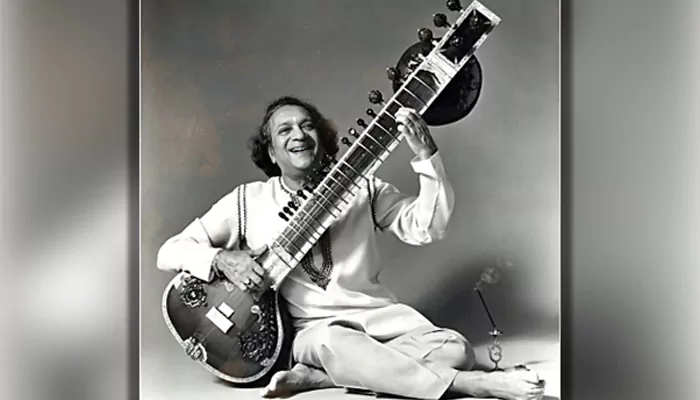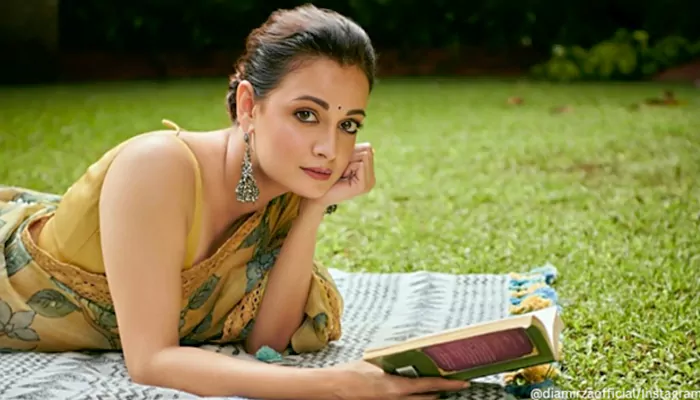Happy Birthday, Javed Akhtar: How Salim-Javed Revolutionized Bollywood's Screenwriting Scene
- Sayan Paul
- 10 months ago
- 7 minutes read

Between 1971 and 1987, Salim Khan and Javed Akhtar worked together on 24 films - of which 20 were successful.
As we celebrate Javed Akhtar on his 80th birthday, it's impossible not to talk about his iconic partnership with Salim Khan - the duo commonly known as Salim-Javed. Together, they revolutionized Bollywood's screenwriting landscape, delivering one blockbuster after another. Whether it's the groundbreaking stories, memorable characters, or powerful dialogues - those films belonged to them first, and then the directors, producers, and actors.

The duo's impact was so strong that mainstream Hindi cinema can be divided into two eras - before Salim-Javed, and after Salim-Javed. Today, on Akhtar's birthday, let's discuss their legacy that may inspire every artist out there.
Pioneering A New Storytelling Format
During the late 1960s and early 1970s, Bollywood was almost stagnant with its romance and family drama stories, which appealed to a certain section of society. However, Salim-Javed pioneered a paradigm shift here, with their masala film format.
Simply put, masala films combine multiple genres - action, comedy, romance, drama, thriller, and melodrama – ensuring there’s something for everyone. 'Yaadon Ki Baarat', directed by Nasir Hussain, was their first venture in this format, which garnered enormous love from audiences. Well, there was no looking back after that; the screenwriter duo went on to write more successful masala films throughout the 1970s and 1980s.
Inspired by Hollywood and some Hindi films of the 1940s and 1950s, Salim-Javed introduced the Dacoit Western genre to Bollywood during the 1970s. It all began with 'Sholay' in 1975, which emerged as an unprecedented success both critically and commercially. Unlike the traditional dacoit dramas, they brought a new approach to their films, making the villains mightier than the heroes (for example, Gabbar Singh). Also, they started developing scripts that would involve lots of spectacle-based plot points - featuring rugged landscapes, chase sequences, and intense shootouts among others.
Salim Javed: bold, daring, and revolutionary✍️
— Salman Khan (@BeingSalmanKhan) August 13, 2024
Discover their story on #AngryYoungMenOnPrime, New Series, Aug 20 on @primevideoin 🔥@luvsalimkhan @javedakhtarjadu @aliceinandheri #SalmaKhan @FarOutAkhtar @ritesh_sid #ZoyaAkhtar @Kagtireema #AlviraKhanAgnihotri @khanarpita… pic.twitter.com/IFbQE06fzv
(Credit: Salman Khan)
Besides, Salim-Javed also brought Bombay's gritty underworld into their films. Mostly set against the backdrop of the city's slums, these films depicted the rise of gangsters, showcasing the conflicts between good and bad. 'Zanjeer', 'Deewar' (which, according to Danny Boyle, was "absolutely key to Indian cinema"), 'Don', and 'Kala Patthar' among other films resonated deeply with audiences. And that genre later inspired films like 'Satya', 'Company', and even 'Slumdog Millionaire'.

Amitabh Bachchan and Jaya Bachchan in ‘Zanjeer’
Anti-Establishment Narratives
Salim–Javed emerged at a time when India was struggling with various socio-economic and socio-political issues (for example, the Emergency). Breaking free from Hindi cinema's fairytale-like stories, the duo introduced an anti-establishment narrative in their films. They started writing scripts relevant to society, exploring everything from poverty to corruption to inflation and more.

Amitabh Bachchan in ‘Deewaar’
Here, the duo realized they needed a 'hero' - specifically an "angry young man" - whom the youth would idolize. And that gave birth to a new phenomenon that shattered the entire landscape of popular culture - Mr. Amitabh Bachchan. In films like 'Zanjeer', 'Deewar', 'Coolie', and 'Kala Paththar' among others, Bachchan's characters gave voice to the angst of the urban poor. Dialogues (written by Akhtar) like "Main Aaj Bhi Pheke Hue Paise Nahi Uthata" connected with the masses on a deeply personal level. And those films questioned the flawed system, exposed corporate greed, and empowered the marginalized.
ZANJEER released on 11 May in 1973
— Film History Pics (@FilmHistoryPic) May 10, 2020
Prakash Mehra’s film written by Salim-Javed, feauring Amitabh Bachchan, Jaya Bachchan, Ajit, Bindu and Pran. @SrBachchan pic.twitter.com/edV812QwYP
(Credit: Film History Pics)
Memorable Characters - Flawed, Complex, & Relatable
If you see the Hindi films from the 1950s and 1960s, you may feel that the characters - specifically the heroes - are all one-dimensional. Salim-Javed realized that their characters should be relatable, and should reflect the complexities of life. Hence, they developed flawed, complex, and multidimensional characters.
For instance, the "angry young man" characters played by Bachchan were far from perfect. Burdened by personal loss and societal injustice, they suffered from conflicts and moral dilemmas all the time. Vijay in 'Deewaar' was an anti-hero, who was always stuck in choosing between right and wrong. Vijay in 'Zanjeer', on the other hand, was a troubled soul who never cared about following a righteous path. Similarly, each character in 'Sholay' had their own struggle.
A cop does not give in to kidnappers’ demands and risks his son’s life. The child survives but never forgives his father.
— Film History Pics (@FilmHistoryPic) December 5, 2023
After his mother’s death, the son consoles his father. No dialogue.
Written by Salim-Javed, directed by Ramesh Sippy. Dilip Kumar & Amitabh Bachchan in… pic.twitter.com/wMJ415pxO5
(Credit: Film History Pics)
And it's not just the heroes, Salim-Javed ensured that their female characters too were strong and progressive. Take Basanti in 'Sholay', for example, who was unlike the conventional heroines of Bollywood. In 'Seeta Aur Geeta', the twin sisters (played by Hema Malini) were the leads, while Dharmendra's character eventually became a supporting part. Parveen Babi's character in 'Deewaar' was revolutionary at that time, and later became seen as the "new Bollywood woman".
Hema Malini on the sets of 'Seeta Aur Geeta' (1972). @dreamgirlhema @aapkadharam @Esha_Deol @sowika71 pic.twitter.com/UFJHjjvvCD
— Bollywoodirect (@Bollywoodirect) July 29, 2018
(Credit: Bollywoodirect)
Also, as already mentioned, the villains in Salim-Javed's films were stronger than the heroes. Besides Gabbar Singh, the list also includes Sultan, Ranjit, and Shamsher among others.
The Unprecedented Influence - Becoming Superstars
Till 1970, writers had little to no respect in the Hindi film industry. As Satyajit Ray wrote in his novel 'Bombaiyer Bombete', stories in Hindi cinema were seen as ‘products,’ just like clothes and cosmetics. However, it was Salim-Javed who changed the perception and transformed the scene.
Without an iota of doubt, Salim-Javed were the first Indian screenwriters to achieve a 'star' status. More importantly, they made sure everyone in the industry recognized the contribution of writers to a film's overall success. They got their names put on the film posters, right alongside the directors and actors. And also, they managed to secure proper remuneration for their work - in fact, for some films, they were paid more than the lead actors.
.@GemsOfBollywood presents Gems of Salim-Javed to bring out some contributions of Salim-Javed like Manhus Hindu Tyohar genre, Cursing Bhagwan genre, etc.
— Gems of Bollywood बॉलीवुड के रत्न (@GemsOfBollywood) August 18, 2024
Dedicated to @PrimeVideoIN & #Urduwood nautanki jamaat for upcoming release of #AngryYoungMenOnPrimepic.twitter.com/hBA3hSi8ir
(Credit: Gems of Bollywood)
What's worth noting here is that this wasn't just a personal achievement for Salim-Javed. It was more about changing the system and paving the way for a better future. Thanks to their efforts, screenwriters in Bollywood today receive the recognition and remunerations that they truly deserve.
Salim Khan and Javed Akhtar split in 1982, although some of their scripts were later made into films (for example, 'Mr. India'). Thereafter, Khan went on to write the scripts for about 10 films, while Akhtar started writing lyrics for films. However, their blockbusters are still regarded as benchmarks, with their legacy continuing to inspire writers and filmmakers.












